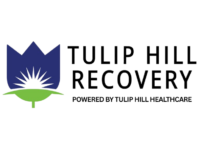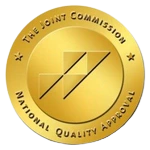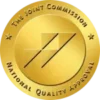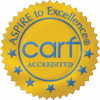Signs You Need Rehab
Recognizing that you may need rehab is one of the hardest steps in the journey toward recovery.
Addiction has a way of clouding self-awareness and interfering with clear decision-making, making it difficult to see the full impact of substance use on your health, relationships, and quality of life.
Many people delay seeking help not because they don’t care, but because they aren’t sure if their situation is serious enough, or they’re afraid of what taking that first step might mean.
If you’ve ever asked yourself, “Do I need help for addiction?” or wondered whether your substance use has crossed a line, this page is here to help you find clarity.
We’ll walk through the most common physical, emotional, and behavioral signs you need rehab, and help you understand what to look for in yourself or someone you care about.
At Tulip Hill Recovery, we understand how overwhelming it can be to face these questions. That’s why we offer compassionate, individualized care for people at every stage of addiction.
Whether you need inpatient rehab, outpatient therapy, or help managing withdrawal symptoms, we’re here to guide you toward healing—one step at a time.
What Is Rehab and Who Is It For?
Addiction rehab is a treatment program designed to help individuals stop using drugs or alcohol and build a healthier, substance-free life.
Rehab addresses not only the physical aspects of addiction, like withdrawal and craving, but also emotional and psychological factors that contribute to substance use.
Through therapy, education, and support, rehab gives people the tools needed to recover and stay sober.
There are two types of rehab: inpatient and outpatient.
Residential Addiction Treatment involves living at a treatment facility for a set period of time, usually between 30 and 90 days. This setting offers 24/7 support, medical care, and a structured routine that removes you from everyday triggers.
Outpatient rehab, on the other hand, allows individuals to live at home while attending therapy and treatment sessions several times a week. It’s a more flexible option that works well for those with a strong support system or less severe addiction.
Rehab is for anyone who feels their substance use is out of control—whether that means physical dependence, emotional reliance, or a cycle of failed attempts to quit. It’s also for people whose relationships, health, or work life are suffering because of drug or alcohol use.
Whether it’s your first time seeking help or you’ve been through treatment before, rehab can help you find your footing and start fresh.
Physical Signs You Need Rehab
One of the most visible ways addiction shows up is through changes in your physical health. While many people focus on emotional or behavioral red flags, physical symptoms are often the earliest and most obvious signs you need rehab.
These symptoms reflect how deeply substance use is affecting your body and how urgently support may be needed.
- A warning sign is the presence of persistent withdrawal symptoms. If you feel sick, anxious, shaky, or irritable when you try to stop using, your body has likely developed a physical dependence on the substance.
These symptoms range from mild discomfort to dangerous medical emergencies, depending on the substance and the severity of use.
- Another clear indicator is increased tolerance—needing more of the drug or alcohol to achieve the same effect. This creeping tolerance often leads to more frequent or higher doses, raising the risk of overdose and long-term health damage.
- People struggling with addiction may also experience frequent illnesses, weakened immune function, or a general decline in physical well-being.
- Neglecting personal hygiene or ignoring medical issues becomes common, especially as substance use begins to take priority over basic self-care.
- Other physical red flags include changes in sleep patterns (e.g., insomnia or excessive sleeping), unexplained weight loss or gain, and disrupted eating habits. Using substances to fall asleep, wake up, or numb physical pain is also a common pattern among those in active addiction.
These physical symptoms are more than just inconvenient—they’re your body’s way of signaling distress. Left unaddressed, they tend to get worse over time.
Recognizing these early signs can be the push you need to seek help.
Rehab programs provide medical support, help you stabilize your health, and give your body the time and care it needs to begin healing.
Behavioral and Emotional Signs You Need Help for Addiction
Addiction doesn’t just affect your body—it takes a serious toll on your behavior, emotions, and mental health. In many cases, the most telling signs you need help for addiction are changes in how you act, how you feel, and how you interact with the world around you. These shifts are often subtle at first, but they can escalate quickly and interfere with every area of life.
Mood swings are common in people struggling with substance use. You may feel irritable, anxious, depressed, or emotionally unstable without fully understanding why.
These emotional changes are often tied to the chemical impact of drugs or alcohol on the brain.
Over time, substances can alter your brain’s ability to regulate emotions, making it harder to feel balanced, hopeful, or in control.
You might also notice a growing pattern of neglected responsibilities—missing work, skipping school, forgetting family obligations, or falling behind on bills. Substance use can shift your priorities without you realizing it, causing things that once mattered to fall by the wayside.
Risky or impulsive behavior is another warning sign.
This can include driving under the influence, getting into legal trouble, unsafe sex, or putting yourself in dangerous situations while intoxicated.
Isolation and secrecy are also red flags.
If you find yourself hiding how much you’re using, lying about your habits, or avoiding loved ones, it may be because deep down, you know something isn’t right.
Perhaps the most telling emotional sign is denial—downplaying your use, blaming others, or insisting you can stop anytime.
For family members, these signs are often easier to spot from the outside. If your loved ones have expressed concern, it’s worth listening.
Behavioral and emotional signs are your mind’s way of signaling distress. When these patterns begin to take over your life, it may be time to consider rehab. Structured treatment can help you regain emotional stability, rebuild healthy routines, and reconnect with what matters most.
Relationship and Social Impacts
Addiction doesn’t happen in a vacuum—it affects everyone around you. One of the most painful signs you need rehab is the damage addiction can cause to your relationships and social life. As substance use becomes more central, the people and connections that once brought meaning and support often start to fade.
You may notice strained or broken relationships with close friends, family members, or partners. Arguments become more frequent, communication breaks down, and emotional distance grows. Over time, the trust that once held these relationships together begins to erode.
Loved ones may no longer rely on you or feel they can count on your word. Loss of trust is a major consequence of addiction, especially when it leads to lying, missed obligations, or unpredictable behavior.
This can create tension at home, in the workplace, or in any space where people depend on you.
Another common pattern is a shift in social circles.
People who are struggling with addiction often start spending time with others who enable or encourage substance use. This can reinforce harmful behaviors while pushing away those who want to help or support recovery.
As this pattern continues, isolation from healthy environments becomes more pronounced. Supportive friends, positive influences, and meaningful connections are replaced by secrecy, shame, or toxic relationships.
For families—especially parents or partners—the effects are often deeply emotional. Addiction can disrupt the entire household, creating confusion, resentment, fear, and heartache. Children may feel neglected. Partners may feel helpless or betrayed.
Rehab provides an opportunity to break this cycle. It creates space to focus on healing—not just for the individual, but for the relationships that have been impacted along the way.
With time, support, and the right treatment, it’s possible to rebuild trust and restore connection.
When Substance Use Becomes the Priority
One of the clearest signs you need rehab is when substance use starts to take priority over everything else in your life. What may have started as occasional or social use can slowly evolve into a central focus, pushing out the things that once brought joy, purpose, and connection.
Many people experience a loss of interest in hobbies and passions they once loved. Activities that used to be fun or fulfilling—like sports, music, spending time with family, or creative pursuits—fall by the wayside.
Substance use begins to replace them, becoming the default way to pass time or cope with life.
You might also notice that you’re scheduling your day around using, making sure you always have access to your drug of choice, or avoiding commitments that might interfere with getting high or drinking. This often comes with spending more money on substances, even when it means neglecting basic needs like food, rent, or transportation.
Perhaps most concerning is the shift in priorities—choosing substances over people. Important relationships suffer when drug or alcohol use becomes more important than being present, dependable, or emotionally available.
This transition from casual use to compulsive behavior is a major red flag. When you no longer feel in control—or when life revolves around the next drink or hit—it’s a strong indicator that rehab may be necessary.
Treatment can help break this cycle and reconnect you with a healthier, more meaningful way of living.
Self-Assessment: How to Know If You Need Rehab
One of the most personal ways to recognize the signs you need rehab is through honest self-reflection.
Addiction often distorts our ability to see the truth about our own behavior, which is why asking yourself a few direct questions can be so powerful.
If you’re wondering, “Do I need help for addiction?”—that question alone may already be a sign that it’s time to take a closer look.
Take a moment to answer the following yes-or-no questions:
-
Have I tried to quit or cut back but failed?
-
Do I lie to others—or to myself—about how much I’m using?
-
Has my physical or mental health declined because of substance use?
-
Do I feel ashamed or secretive about my drinking or drug use?
-
Have friends, family, or coworkers expressed concern?
-
Have I continued using even after experiencing negative consequences?
-
Is my substance use interfering with work, school, or relationships?
-
Do I feel anxious, sick, or uncomfortable when I’m not using?
If you answered “yes” to even a few of these questions, it’s a strong indicator that rehab may be necessary.
Being honest with yourself is not always easy, but it’s a critical part of reclaiming control over your life.
Addiction thrives in secrecy and denial—but healing begins with truth and action. If these questions resonate with you, it may be time to explore your options for treatment.
At Tulip Hill Recovery, we’re here to offer support, guidance, and a path forward when you’re ready.
Signs a Loved One Needs Rehab
When someone you love is struggling with addiction, it can be difficult to know when to step in—or even what to look for. People in active addiction often go to great lengths to hide their behavior, but there are still common signs a loved one needs rehab that families can learn to recognize.
Some of the biggest red flags include secretiveness—suddenly becoming vague about their whereabouts, hiding substances, or being overly defensive when asked simple questions.
You may also notice personality changes, such as mood swings, irritability, or they seem to have a loss of interest in things they once cared about.
Financial problems are another common clue. If your loved one is constantly borrowing money, missing rent, or selling personal items, it could point to substance-related spending.
Legal issues, such as DUIs or arrests, often come into play when addiction escalates.
And finally, watch for emotional volatility—frequent anger, depression, or anxiety that doesn’t seem to have a clear cause.
If you’re unsure whether these signs point to addiction, start by observing and documenting patterns over time.
Keep track of concerning behaviors, and don’t ignore your instincts. A gentle, honest conversation can open the door to getting them help, but if you’re still uncertain, consider reaching out for a professional assessment.
At Tulip Hill Recovery, we work with families every day who are trying to help someone they care about. If you’re worried about a loved one, we’re here to provide answers, support, and guidance—because no one should have to face addiction alone.
When Is Inpatient Rehab the Right Choice?
Inpatient rehab is often the most effective option for individuals who need a high level of care and structure to begin their recovery journey, but how do you know if it’s the right choice?
Certain criteria can help determine whether inpatient treatment is necessary.
Inpatient rehab is particularly recommended for those with long-term or heavy substance use, where the body and mind have become deeply dependent.
It’s also ideal for individuals dealing with co-occurring disorders, such as depression, anxiety, PTSD, or bipolar disorder, which often complicate the recovery process and require integrated treatment.
Another key factor is your home environment. If your surroundings are unsafe, unstable, or enable substance use, inpatient care can provide a crucial escape from triggers.
Similarly, if you’ve relapsed after trying outpatient treatment or detoxed multiple times without lasting results, inpatient rehab offers a more immersive and supportive solution.
The benefits of inpatient rehab include 24/7 medical supervision, structured routines, safe detoxification, and access to a supportive peer community.
This environment removes distractions and allows individuals to focus solely on healing.
By contrast, outpatient programs are typically better suited for those with milder addictions, strong support systems at home, and the ability to manage their daily responsibilities while attending treatment part-time.
If you’re unsure which level of care is right for you or a loved one, Tulip Hill Recovery can help guide that decision. Our team offers confidential assessments to match each person with the treatment path that gives them the best chance at long-term recovery.
The Benefits of Early Intervention
When it comes to addiction, the sooner you seek help, the better the chances for a successful recovery. Recognizing the signs you need rehab early—and acting on them—can prevent lasting damage and significantly improve your long-term outcome.
Delaying treatment allows addiction to deepen, often leading to serious physical health problems, mental health decline, and fractured relationships.
Over time, substance use can impact every area of life—your career, your sense of self, and your ability to connect with loved ones. However, early intervention can stop that downward spiral before it becomes harder to reverse.
Starting treatment sooner rather than later is also associated with better recovery outcomes. People who enter rehab before their addiction becomes severe are often more responsive to therapy and less likely to experience repeated relapses.
For families, early intervention helps preserve emotional bonds and prevents the chaos that often accompanies unchecked addiction.
It also gives individuals the chance to rebuild their careers, routines, and self-confidence while the damage is still limited.
Perhaps most importantly, seeking help early is empowering. It sends a clear message: that you’re ready to take control, get better, and build a different future.
You don’t have to wait until things fall apart. If you’re noticing the signs—or if someone you love is—now is the time to act. Tulip Hill Recovery is here to help you start that process with compassion and support.
What Happens After You Decide to Get Help
Deciding to get help for addiction is a powerful first step—but what happens next?
At Tulip Hill Recovery, we guide you through every phase of the process, starting with a compassionate and confidential intake and assessment.
This initial step helps our team understand your unique situation, substance use history, mental health needs, and personal goals.
Based on that assessment, we create a customized treatment plan tailored to you. No two recovery journeys are alike, so we focus on what will work best for your background, preferences, and challenges.
If you’re physically dependent on drugs or alcohol, we may recommend starting with medical detox. This provides a safe, supervised environment to manage withdrawal symptoms and stabilize your body before entering the next phase of care.
From there, you’ll begin a structured treatment program that includes a range of evidence-based therapies.
These may include Cognitive Behavioral Therapy (CBT), trauma-informed care, individual counseling, group therapy, and family support—all designed to help you as you build new coping skills, address root causes of addiction, and strengthen your recovery.
As treatment progresses, we also help with transition planning and aftercare.
This includes preparing for life after rehab, setting up outpatient support, sober living if needed, and creating a long-term relapse prevention strategy.
Our goal is to support you not just in getting sober, but in staying sober and thriving.
Moving from Denial to Action —
Whether you’re struggling with addiction yourself or watching a loved one battle it, taking that first step toward treatment can be life-changing.
Many people delay getting help because they’re unsure if they’re “bad enough” or feel too ashamed to reach out.
The truth is, you don’t have to hit rock bottom to start climbing out. The earlier you take action, the more opportunities you have to heal, rebuild, and protect your future.
If you’re questioning whether rehab is necessary, or if you’ve seen the signs in someone close to you, now is the time to act.
At Tulip Hill Recovery, we offer supportive, personalized treatment programs for individuals and families navigating addiction. Our team is here to walk you through the process, without judgment and with full confidentiality.
You don’t have to go through this alone. Contact us today to speak with someone who understands.

Take the First Step Toward Recovery
If you or a loved one is showing signs of addiction, don’t wait.
Call Tulip Hill Recovery at (629) 201-7877 or contact us online for a confidential and free assessment.
We’ll verify your insurance, answer your questions, and help you understand your treatment options.
Whether you need inpatient rehab, outpatient care, or a supportive place to start, we’re here for you, every step of the way.
Start Your Journey to Healing Today

Call or message us

Free assessment
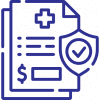
Insurance check

Choose a start date
Get Family Support Now
Supporting Families Through Recovery
We understand addiction affects the whole family. Our comprehensive family program helps rebuild trust and restore relationships.
Weekly Family Therapy Sessions
Educational Workshops
Support Groups
Communication Skills Training
 |
Medically Reviewed By:
Board-Certified Psychiatrist and Addictionologist
|
 |
Clinically Reviewed By:
Board Certified Clinical Social Worker
|
Our Verifications & Affiliations
Yes, Your Insurance Covers Detox and Rehab Treatment.
Get Family Support Now
Supporting Families Through Recovery
We understand addiction affects the whole family. Our comprehensive family program helps rebuild trust and restore relationships.
Weekly Family Therapy Sessions
Educational Workshops
Support Groups
Communication Skills Training
